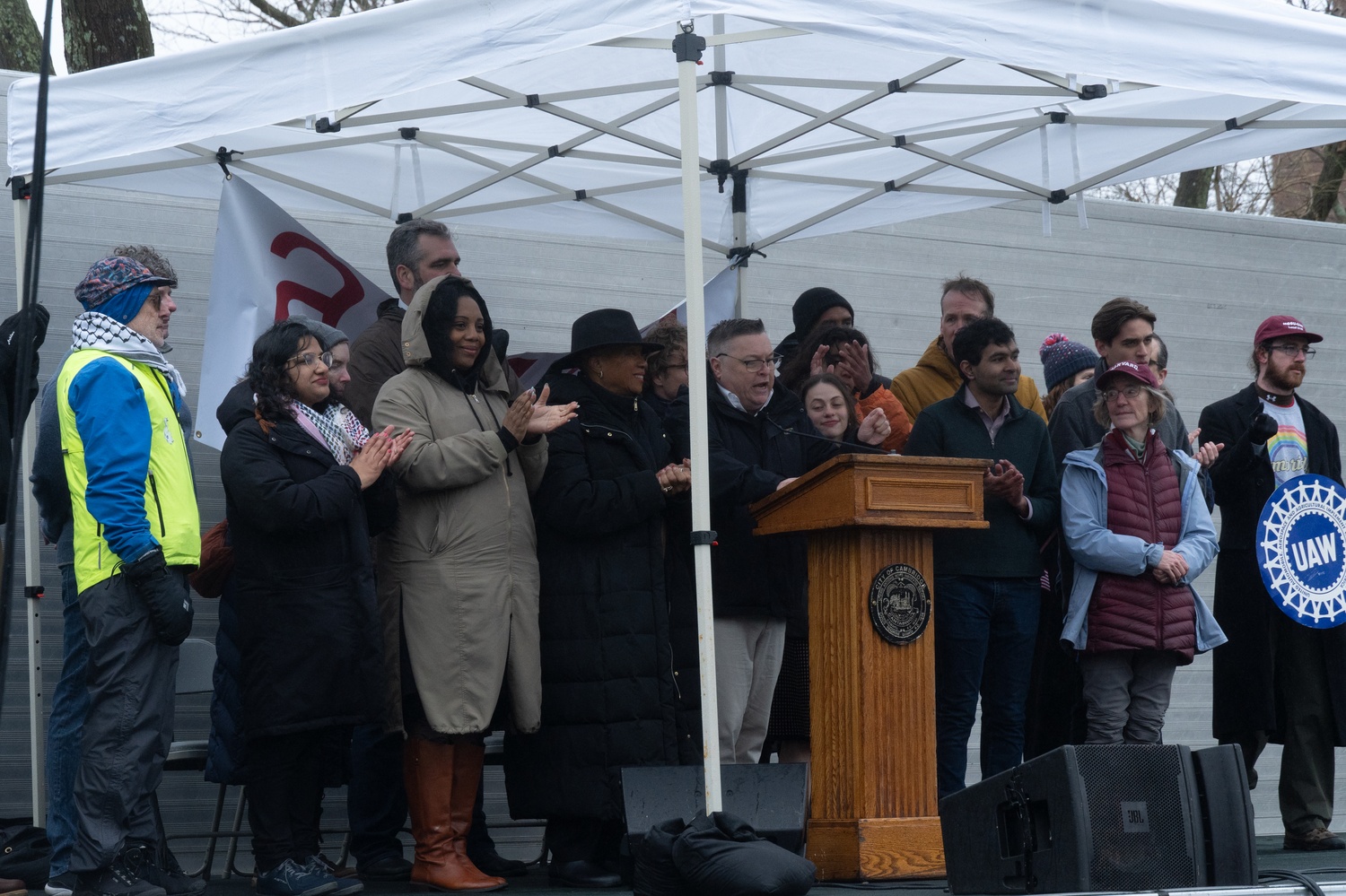
News
Summers Will Not Finish Semester of Teaching as Harvard Investigates Epstein Ties

News
Harvard College Students Report Favoring Divestment from Israel in HUA Survey

News
‘He Should Resign’: Harvard Undergrads Take Hard Line Against Summers Over Epstein Scandal

News
Harvard To Launch New Investigation Into Epstein’s Ties to Summers, Other University Affiliates

News
Harvard Students To Vote on Divestment From Israel in Inaugural HUA Election Survey
Harvard AAUP Changes Litigation Strategy in Response to Funding Cuts

Updated April 16, 2025, at 6:21 p.m.
Harvard’s chapter of the American Association of University Professors withdrew its request for a judge to preemptively block funding freezes from the Trump administration, after the court did not grant its temporary restraining order before a $2.2 billion cut was announced on Monday.
History professor Kirsten A. Weld, who leads the Harvard AAUP chapter, told The Crimson on Tuesday that the group was planning to ask for a preliminary injunction to halt the freeze and prevent further cuts to Harvard’s funding. But no preliminary injunction has been filed yet, and Weld and Veena Dubal, general counsel to the national AAUP, wrote on Wednesday that the AAUP has not decided whether they plan to pursue one.
The plaintiffs’ lawyers are “still assessing what kind of relief will be most appropriate to request,” Weld wrote in a Wednesday email.
The Harvard AAUP chapter filed its initial lawsuit on Friday, asking a federal judge to immediately halt any attempts by the federal government to review Harvard’s federal funding. Their complaint alleges that the Trump administration’s review is an illegal application of Title VI of the Civil Rights Act, which prohibits discrimination at federally funded universities.
But a judge did not rule on the motion over the weekend before the administration paused more than $2 billion in federal funds to Harvard on Monday night — itself a reaction to a declaration by Harvard President Alan M. Garber ’76 that the University would not negotiate over the money.
Temporary restraining orders can be issued within days of filing and remain in effect for two weeks. But a preliminary injunction can stay in place as long as the case is active after an initial hearing.
Though the AAUP’s original motion hoped to prevent a funding freeze, the group had to shift tactics as “events on the ground” changed quickly, Weld said.
Harvard’s public defiance of the White House could put the University on common legal ground with the AAUP chapter if Garber decides to sue. In his Monday email to affiliates, Garber argued the demands went “beyond the power of the federal government,” hinting at a potential legal strategy under Title VI.
“We are hopeful that that case will move forward in a timely manner, and that the faculty chapter, the AAUP national, and the Harvard University administration can move to fight this collectively and together — and that it will have minimal impact on the campus community,” Dubal said.
The group has not decided on its next steps after withdrawing the request for the temporary restraining order, according to Dubal.
“Now that it’s clear that Harvard is going to be fighting this, our legal strategy will be impacted,” Dubal said.
As of Wednesday evening, the University had not communicated directly with the Harvard AAUP chapter about their suit, Weld said.
“The AAUP Harvard faculty chapter is here,” Weld, the Harvard AAUP president, said. The chapter “is willing to have — and would be delighted to have — an open line of communication with the University administration on issues of common interest,” she added.
A Harvard spokesperson did not respond to a request for comment.
Corrections: April 16, 2025
A previous version of this article incorrectly stated that an initial hearing had been scheduled on April 23rd. In fact, that hearing was scheduled for a separate AAUP lawsuit over immigration enforcement policies, and a hearing has not been scheduled for the funding lawsuit.
A previous version of this article incorrectly stated that the AAUP had filed a motion for a preliminary injunction. In fact, a motion has not been filed.
—Staff writer Matan H. Josephy can be reached matan.josephy@thecrimson.com. Follow him on X @matanjosephy.
—Staff writer Laurel M. Shugart can be reached at laurel.shugart@thecrimson.com. Follow them on X @laurelmshugart.
Want to keep up with breaking news? Subscribe to our email newsletter.
